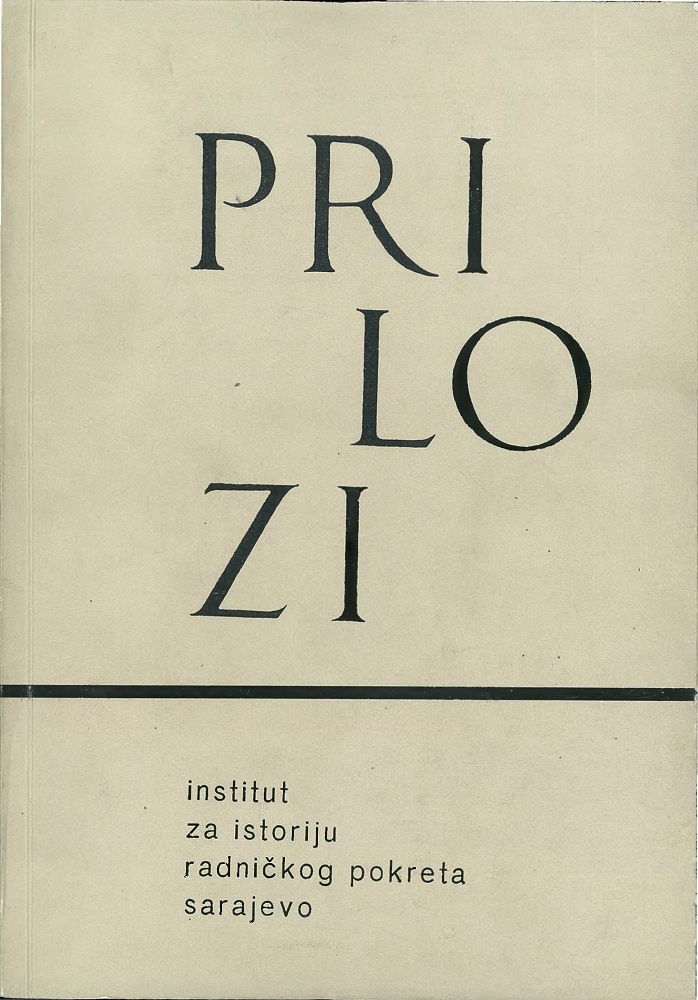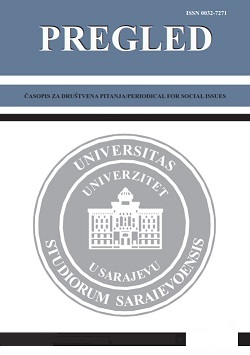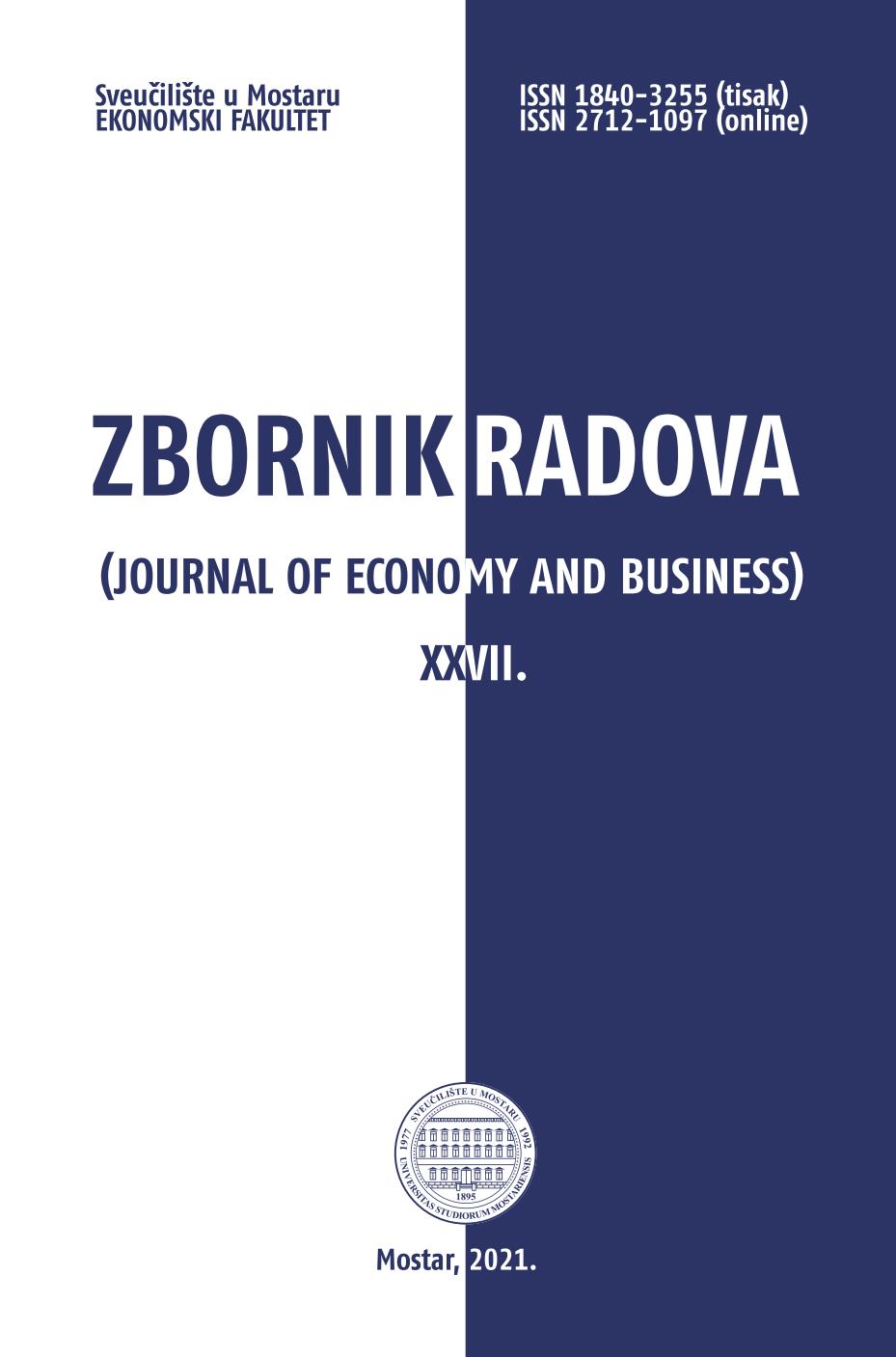Objavljivanjem ugovora do transparentnijih javnih nabava u Bosni i Hercegovini - Analiza pravnog okvira
Author(s): Stanka Pejaković / Language(s): Bosnian
Keywords: BiH; public procurement; contracts transparency; legal framework;
Ugovori o javnoj nabavi nastaju kao rezultat potrebe za učinkovitim korištenjem proračunskih sredstava i poticanja slobodnog tržišnog natjecanja i instrument su za realizaciju javne nabave u praksi. Sklapanjem ugovora o javnoj nabavi započinje nova faza u ostvarivanju javne nabave (posttenderska faza), u kojoj se, također, mogu pojaviti zlouporabe koje negativno utječu na učinkovitost sustava javne nabave. Naime, negativni ekonomski učinci, poput korupcije, nepotizma ili pogodovanja, ne moraju biti nužno vezani za proceduru koja prethodi sklapanju ugovora, već se mogu pojaviti i u posttenderskoj fazi javne nabave. Te zlouporabe bi trebale spriječiti odgovarajuće pravne norme. U Bosni i Hercegovini (BiH) ugovori o javnoj nabavi su regulirani Zakonom o javnim nabavama (dalje u tekstu ZJN), koji uređuje procedure provođenja postupaka javne nabave. Međutim, taj Zakon ugovore o javnoj nabavi ne uređuje u cijelosti, tako da brojna pitanja u vezi sa sklapanjem i izvršavanjem ugovora ostaju izvan dosega regulacije. Zbog toga se na ugovore o javnoj nabavi supsidijarno primjenjuju relevantne odredbe Zakona o obligacionim odnosima BiH (dalje u tekstu ZOO). Posljedično tome javlja se problem primjene načela dispozitivnosti kao temeljnog načela građanskog prava, odnosno slobode volje ugovornih strana pri sklapanju i izvršavanju ugovora o javnoj nabavi, a čiju primjenu je u postupcima javne nabave potrebno ograničiti imperativnim zakonskim odredbama. Objavljivanje ugovora o javnoj nabavi je jedno od pitanja koje ne treba prepustiti slobodnoj volji ugovornih strana i koje treba urediti imperativnim odredbama ZJN-a. Iako su u tekst ZJN-a unesene odredbe o objavljivanju ugovora o javnoj nabavi, te odredbe su nedovoljno precizirane i pojašnjene, a i nedovoljno usklađene s postojećim europskim standardima. Takva regulacija dovodi u pitanje i ispravnu realizaciju načela transparentnosti kao jednog od temeljnih načela u postupcima javne nabave. I prethodna istraživanja u ovom području ukazuju na to da je pitanje transparentnosti ugovora o javnoj nabavi neuralgična točka bosanskohercegovačkog sustava javne nabave. Polazeći od naprijed navedenog, predmet ove studije je podrobnija analiza pitanja objavljivanja ugovora o javnoj nabavi u cilju jačanja načela transparentnosti, koje prema važećoj legislativi u BiH nije na zavidnoj razini. Studija se prvenstveno temelji na analizi zakonskih i podzakonskih akata u bosanskohercegovačkom zakonodavstvu, koji se odnose na objavljivanje sklopljenih ugovora o javnoj nabavi i objavljivanje izmjena takvih ugovora. Istodobno se razmatra i pitanje ograničenja načela transparentnosti načelom zaštite poslovne tajne. Analizirane su one odredbe ZJN-a koje su zbog specifičnosti uređene normama imperativnog karaktera, ali i odnos tih normi prema građanskopravnim normama koje proizlaze iz općeg propisa, tj. ZOO-a. Unatoč tendenciji da se ugovori o javnoj nabavi promatraju kroz prizmu ugovora građanskog prava, priroda specifičnih ugovornih odnosa iz ugovora o javnoj nabavi zahtijeva nešto drukčiji pristup izvršavanju ugovora o javnoj nabavi, a potpuno drukčiji pristup što se tiče objavljivanja ugovora o javnoj nabavi. Razmatrani su i relevantni standardi prava Europske unije (EU) i dobre prakse u pojedinim državama članicama. U nastavku studije predstavljene su glavne rasprave u ovom području, sa fokusom na širi značaj osiguranja transparentnosti ugovora o javnoj nabavi, ne gubeći pri tome iz vida instrumentalni karakter ovog načela. Predočen je pregled međunarodnih standarda u dijelu koji se odnosi na objavljivanje ugovora o javnoj nabavi, s naglaskom na relevantne direktive EU, kao i na komparativna iskustva država članica koje se ističu kao primjeri dobre prakse, sa posebnim osvrtom na zemlje u regiji koje su se pridružile EU (Hrvatska ili Slovenija). Analizira se zakonski okvir koji uređuje pitanje objavljivanja ugovora o javnoj nabavi i objavljivanja izmjena ugovora u BiH, a s ciljem isticanja ključnih aspekata – pozitivnih strana i nedostataka transparentnosti tih ugovora. Razmatraju se i moguća ograničenja načela transparentnosti u vezi sa zaštitom tajnih podataka poduzetnika – gospodarskih subjekata u postupcima javne nabave. U zaključku su sumirani rezultati analize, a u nastavku su ponuđene preporuke za unaprjeđenje postojećeg bosanskohercegovačkog normativnog okvira u dijelu koji se odnosi na objavljivanje ugovora o javnoj nabavi i objavljivanje izmjena toga ugovora tijekom njegovog izvršavanja.
More...





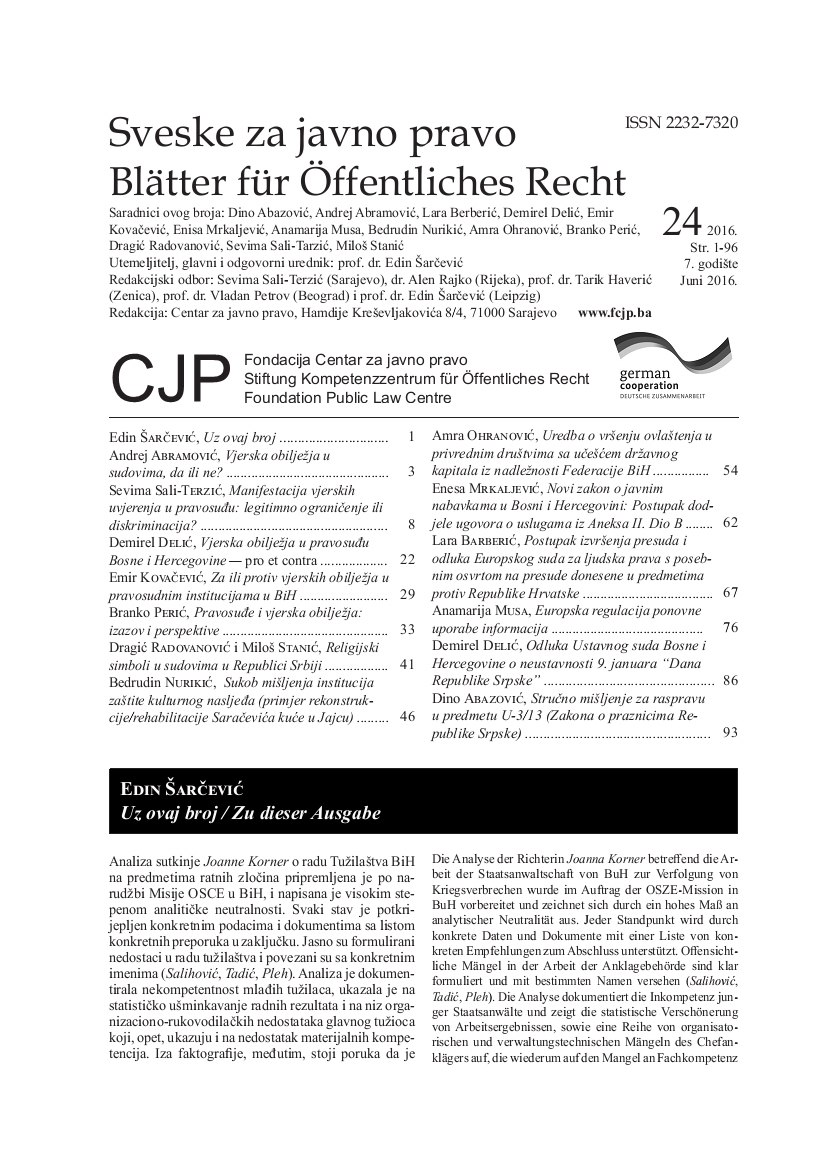
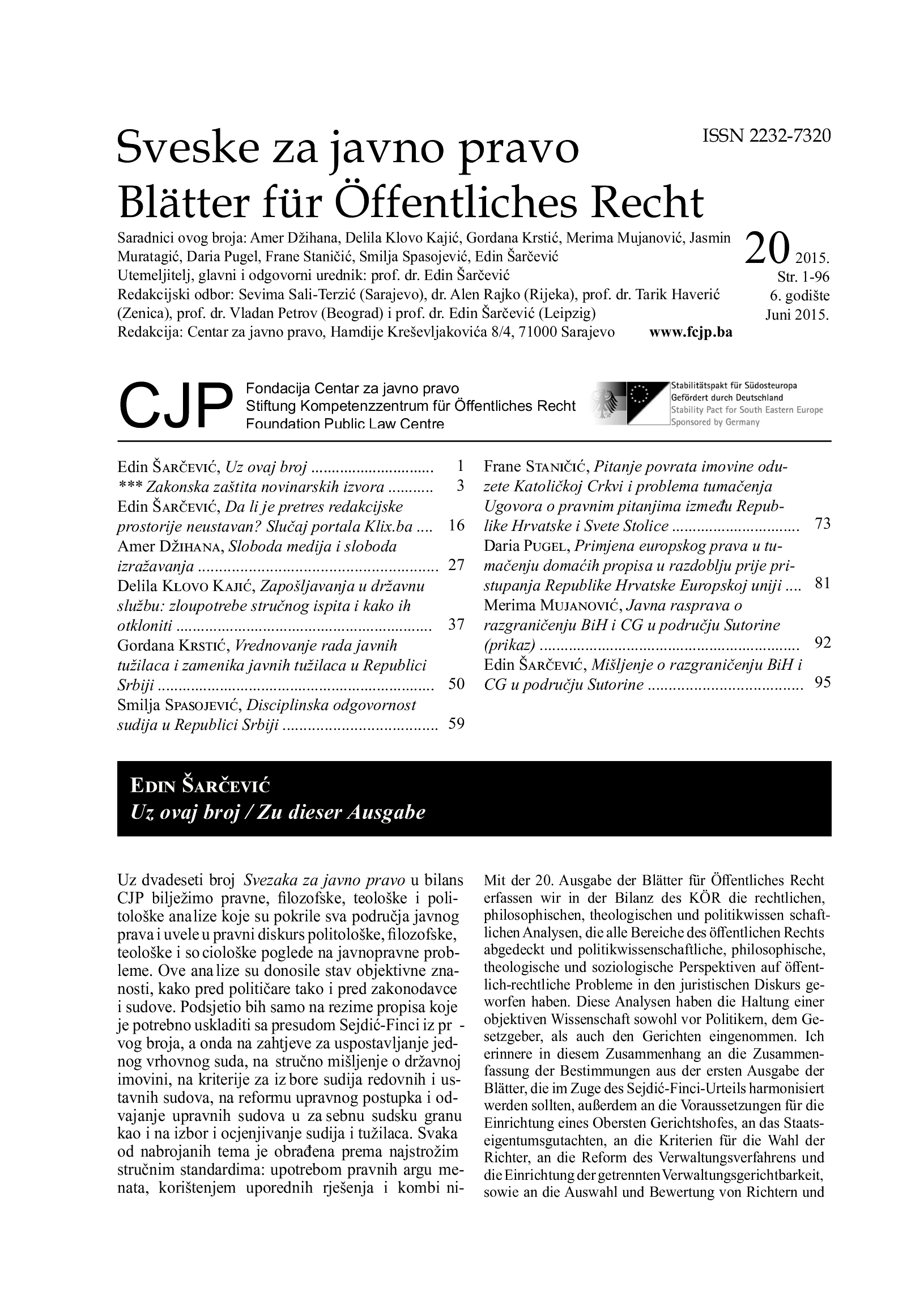
![Liability arising from the theft of the vessel on berth and the effects of the non-fulfilment of contractual obligation to hand the vessel over to the marina from the contract of berth and custody of the vessel : [court's decision review]](/api/image/getissuecoverimage?id=picture_2017_42736.jpg)
![Breack of Article 81 and Article 82 of the Treaty of Rome by reason of predatory pricing, use of fighting ships and spreading rumors about insolvency of the claimant : [case review]](/api/image/getissuecoverimage?id=picture_2008_45508.jpg)
